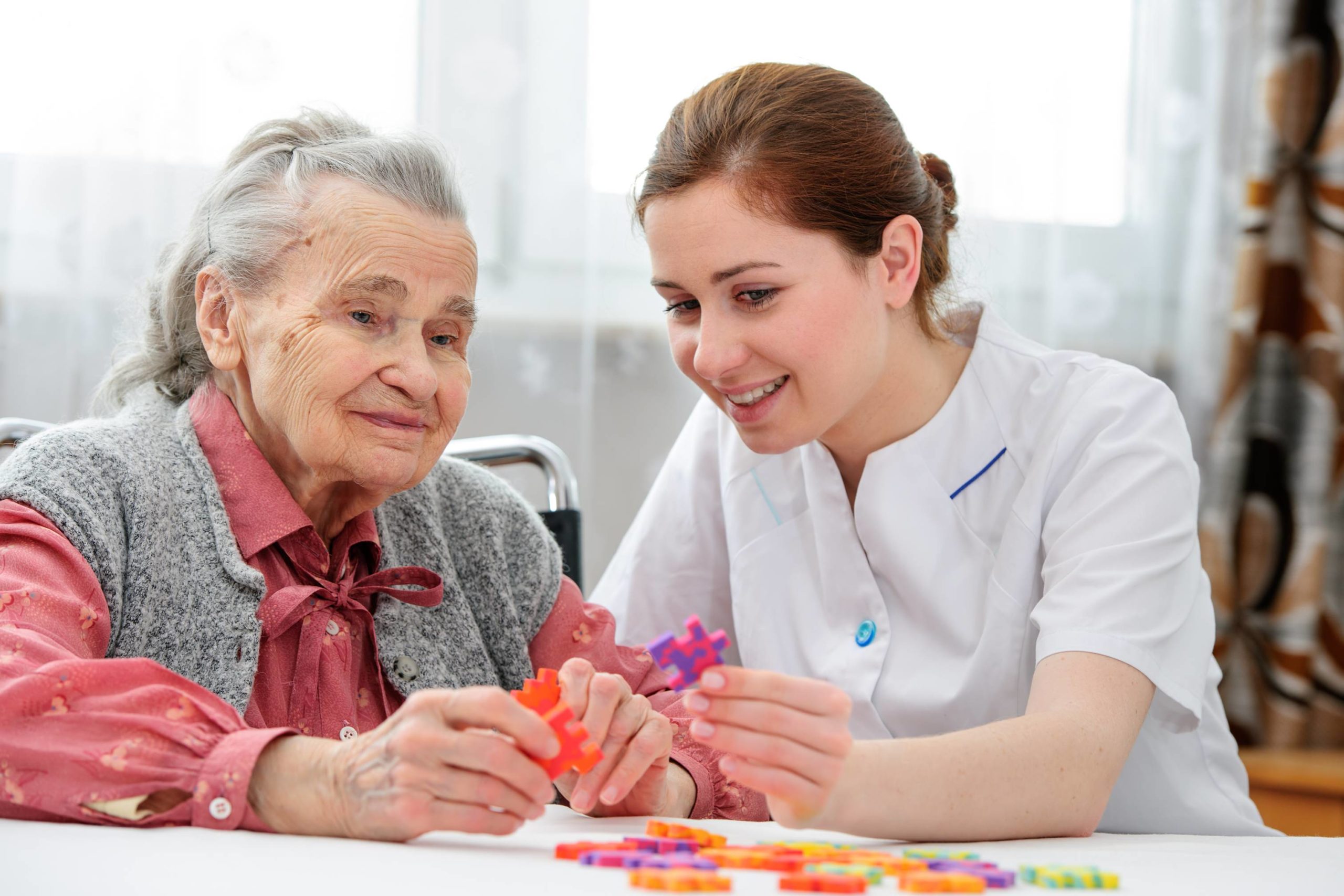
Comprehending Dementia Treatment: A Guide for Loved Ones
The complexities of dementia care need a nuanced understanding that prolongs beyond basic expertise of the problem itself. For liked ones, acknowledging the early symptoms and applying efficient communication approaches are critical in cultivating a supportive setting. Caregivers have to not ignore their very own well-being, as it significantly influences their capability to give compassionate care. As we check out these essential elements, it ends up being apparent that the journey of comprehending mental deterioration care is not practically the individual affected, yet also about the elaborate dynamics that shape their experiences and partnerships. What insights can transform this trip?
What Is Dementia?
Mental deterioration is a collective term that incorporates a series of cognitive disabilities identified by a decline in memory, believing, and social capacities extreme enough to hinder life. It is not a particular condition but rather an umbrella term that consists of various kinds of cognitive problems, with Alzheimer's condition being the most prevalent. Other kinds consist of vascular mental deterioration, Lewy body mental deterioration, and frontotemporal dementia, each with distinct attributes and underlying reasons.
The start of mental deterioration normally includes gradual cognitive decrease, impacting the individual's ability to execute day-to-day jobs and involve meaningfully with others. These problems can materialize as difficulties with interaction, analytic, and judgment. As mental deterioration progresses, individuals may experience adjustments in mood and behavior, which can further complicate their treatment and social communications.
Comprehending mental deterioration is important for family members, caretakers, and healthcare professionals to provide ideal support and interventions. Early diagnosis and intervention can aid take care of signs and symptoms and boost the lifestyle for those impacted. Furthermore, it fosters a much deeper understanding of the obstacles encountered by individuals with dementia, highlighting the importance of thoughtful treatment and assistance throughout their journey.
Recognizing the Signs And Symptoms
Identifying the symptoms of mental deterioration early is important for effective treatment and support - memory care facilities charlotte. Dementia incorporates a series of cognitive problems that can materialize in numerous methods, frequently hindering day-to-day performance and quality of life. Typical very early signs consist of amnesia, particularly neglecting recent events or discussions, which might initially be disregarded as regular aging
As the problem advances, people may display problems with analytical, planning, or completing acquainted tasks, such as handling funds or adhering to a recipe. Complication regarding time or area often occurs, causing disorientation and anxiety. Changes in state of mind and habits are likewise considerable indications; people might end up being withdrawn, cranky, or display apathy towards tasks when enjoyed.
It is necessary to approach these observations with level of sensitivity and understanding, as they can be stressful for both the specific and their loved ones. Trigger focus to these signs can lead to much better end results and assistance for those impacted by mental deterioration.
Reliable Interaction Techniques

Non-verbal hints play a critical duty in interaction. Maintaining eye contact, using appropriate face expressions, and utilizing gestures can help share your message much more properly. In addition, producing a distraction-free environment can further facilitate purposeful interactions.
Active listening is crucial; offer the person sufficient time to react without interrupting. Verify their experiences and feelings, which promotes count on and motivates open discussion. When talking about acquainted topics or memories, utilize motivates to direct the discussion, assisting them feel engaged and valued.
Lastly, be prepared to adapt your technique based upon the individual's existing cognitive state. Adaptability in communication techniques makes sure that you remain linked, enhancing the significance of your connection. By applying these strategies, you can produce a helpful ambience that encourages favorable communications with people influenced by mental deterioration.
Producing an Encouraging Atmosphere
Developing a supportive environment is essential for enhancing the quality of life for individuals with dementia. This environment should focus on knowledge, comfort, and safety to lower anxiousness and confusion. Begin by minimizing possible hazards; get rid of tripping barriers, safe carpets, and ensure that lights is adequate. Plainly mark rooms and locations with signs or signs to aid navigating.
Integrating routines can offer a sense of security. Foreseeable timetables aid individuals with dementia understand what to anticipate throughout the day, therefore reducing sensations of disorientation. Individualizing the space with acquainted things, pictures, and tokens can stimulate favorable memories and produce a sense of belonging.
Furthermore, consider the sensory facets of the environment. Soft shades, relaxing fragrances, and gentle audios can add to a calm ambience. Balance stimulation to stay clear of overwhelming the individual; silent locations for relaxation need to match more energetic spaces for social communication.
Self-Care for Caregivers
Supporting individuals with mental deterioration requires not just a well-structured environment but additionally interest to the health of caregivers. Caregivers usually deal with psychological, physical, and mental obstacles that can result in exhaustion otherwise appropriately dealt with. Focusing on self-care is important to maintain their health and wellness and performance in offering treatment.
First, caregivers must develop a regular routine that consists of time for personal activities and leisure. Taking part in hobbies, exercise, or just taking a stroll can significantly minimize anxiety. It is crucial to maintain a balanced diet plan and make sure ample rest to boost physical resilience.
Additionally, caretakers should seek social support. This can be achieved by joining support groups, involving with buddies, or speaking with member of the family concerning their sensations and experiences. Such connections help caregivers really feel much less separated and offer important emotional electrical outlets.
Finally, caregivers must not think twice to look for expert assistance when needed. Consulting psychological health and wellness professionals can aid in establishing coping strategies and provide devices for handling the psychological toll of caregiving. By actively practicing self-care, caretakers can enhance their wellness, ultimately profiting both themselves and the individuals they look after.
Final Thought
In conclusion, understanding dementia care is essential for Visit Website improving the high quality of life for individuals impacted by this condition. Furthermore, prioritizing self-care for caregivers ensures their health, inevitably benefiting both caretakers and those obtaining continue reading this care.
As we explore these vital elements, it ends up being obvious that the trip of recognizing dementia care is not simply regarding the specific check influenced, however also concerning the complex characteristics that shape their relationships and experiences. Various other types include vascular dementia, Lewy body mental deterioration, and frontotemporal dementia, each with distinctive qualities and underlying reasons.
As mental deterioration advances, people may experience modifications in mood and habits, which can further complicate their care and social communications.
Additionally, it promotes a much deeper understanding of the challenges dealt with by people with dementia, highlighting the relevance of compassionate treatment and assistance throughout their trip.
In conclusion, comprehending mental deterioration treatment is essential for improving the top quality of life for people affected by this condition. (memory care charlotte)